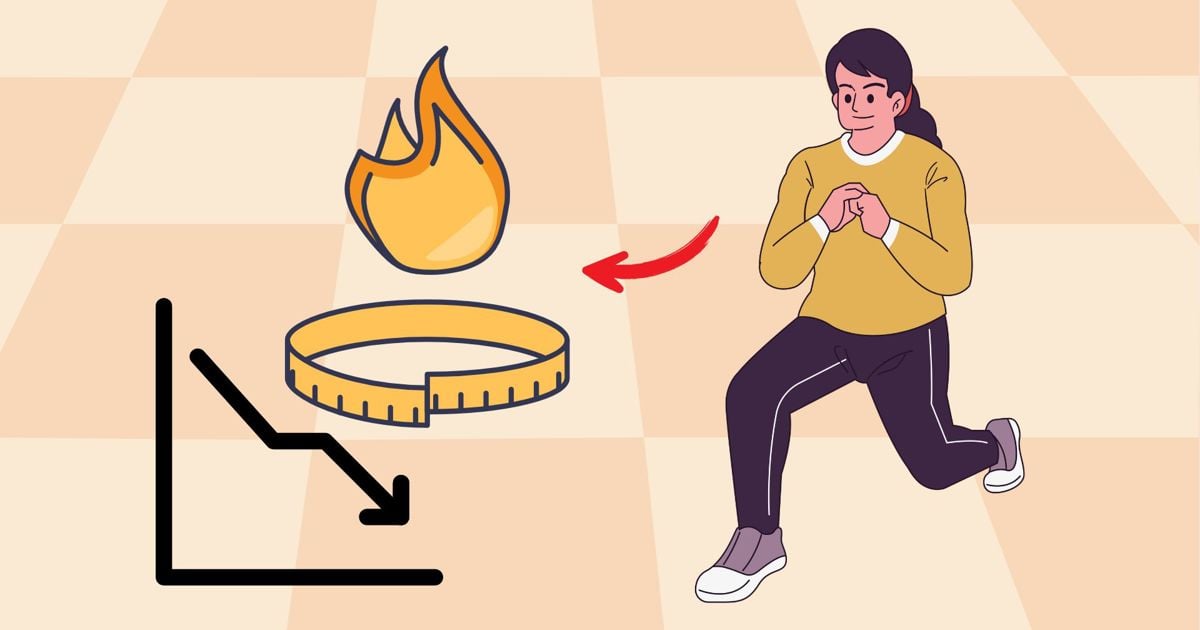Walking is a simple exercise that improves cardiovascular health, strengthens muscles and promotes mental health.
However, like any activity, too much walking can lead to physical stress, joint strain, and even long-term damage.
While walking is often considered a low-impact exercise, overdoing it can lead to discomfort and health issues that should not be ignored, according to the Times Of India.

Although walking is often considered a low-impact exercise, overuse can lead to discomfort and health problems that should not be ignored.
Signs You're Walking Too Much
Persistent fatigue, heaviness or pain in your legs, calves or feet can be a sign that your body isn't recovering properly between walks.
Walking for long periods of time or on uneven surfaces can put stress on your joints, especially your knees, hips, and ankles. Watch for sharp or persistent pain in these areas.
While occasional blisters and calluses are normal for walkers, frequent or recurring blisters and calluses can be a sign of overuse or wearing improper footwear.
Walking for long periods of time, especially on hard surfaces, can cause fluid to build up in the feet and ankles, leading to swelling.
Walking too much can strain your lower back, especially if you walk with poor posture or carry heavy objects.
An overuse injury is a dull ache in the lower leg. Shin sprains occur when the muscles, tendons, and bone tissue in the lower leg become overworked due to repetitive impact.
Walking is a fun activity, but if you find yourself dreading your daily walk, it could be a sign that you're overdoing it.
Too much walking can sometimes disrupt sleep, according to Times Of India.

An overuse injury is a dull ache in the lower leg.
Potential injuries from walking too much
Repetitive stress on bones from too much walking can lead to injuries in the feet and lower legs that can take weeks or months to fully heal.
Overloading the joints from walking too much can lead to osteoarthritis. If not properly cared for, it can become chronic.
Overuse of the foot can lead to plantar fasciitis, causing severe heel pain.
Repetitive stress on tendons, especially in the Achilles or knee tendons, can cause painful tendonitis.
Overexercising, including too much walking, can suppress your immune system, making you more susceptible to illness.
Although walking is beneficial for heart health, sometimes overexertion can lead to stress on the cardiovascular system.
Overexertion physically can also affect mental health, leading to feelings of exhaustion, irritability and lack of motivation.
Paradoxically, walking too much without strength training can burn muscle tissue, reducing overall strength and making weight loss more difficult, according to the Times Of India.
Tips to Avoid Over-Walking and Stay Healthy
Aim for 30 minutes to 1 hour of walking each day and adjust based on how your body feels.
Keep your spine neutral, keep your shoulders relaxed and swing your arms naturally as you walk.
Drink enough water, supplement with protein and healthy fats to have enough fuel for prolonged activity.
Incorporate strength training, cycling or swimming to prevent muscle imbalances and injuries.
Source: https://thanhnien.vn/dieu-gi-xay-ra-voi-co-the-neu-ban-di-bo-qua-nhieu-185250118232219862.htm


![[Photo] President Luong Cuong receives UN Deputy Secretary General Amina J.Mohammed](https://vstatic.vietnam.vn/vietnam/resource/IMAGE/2025/4/17/72781800ee294eeb8df59db53e80159f)
![[Photo] Warm meeting between the two First Ladies of the Prime Ministers of Vietnam and Ethiopia with visually impaired students of Nguyen Dinh Chieu School](https://vstatic.vietnam.vn/vietnam/resource/IMAGE/2025/4/17/b1a43ba73eb94fea89034e458154f7ae)
![[Photo] Hundred-year-old pine trees – an attractive destination for tourists in Gia Lai](https://vstatic.vietnam.vn/vietnam/resource/IMAGE/2025/4/17/25a0b7b629294f3f89350e263863d6a3)
![[Photo] President Luong Cuong receives Kenyan Defense Minister Soipan Tuya](https://vstatic.vietnam.vn/vietnam/resource/IMAGE/2025/4/17/0e7a5185e8144d73af91e67e03567f41)
![[Photo] Prime Minister Pham Minh Chinh and Ethiopian Prime Minister visit Tran Quoc Pagoda](https://vstatic.vietnam.vn/vietnam/resource/IMAGE/2025/4/17/18ba6e1e73f94a618f5b5e9c1bd364a8)
![[Photo] President Luong Cuong receives Lao Prime Minister Sonexay Siphandone](https://vstatic.vietnam.vn/vietnam/resource/IMAGE/2025/4/17/337e313bae4b4961890fdf834d3fcdd5)

















































![[Video] Viettel officially puts into operation the largest submarine optical cable line in Vietnam](https://vstatic.vietnam.vn/vietnam/resource/IMAGE/2025/4/17/f19008c6010c4a538cc422cb791ca0a1)








































Comment (0)